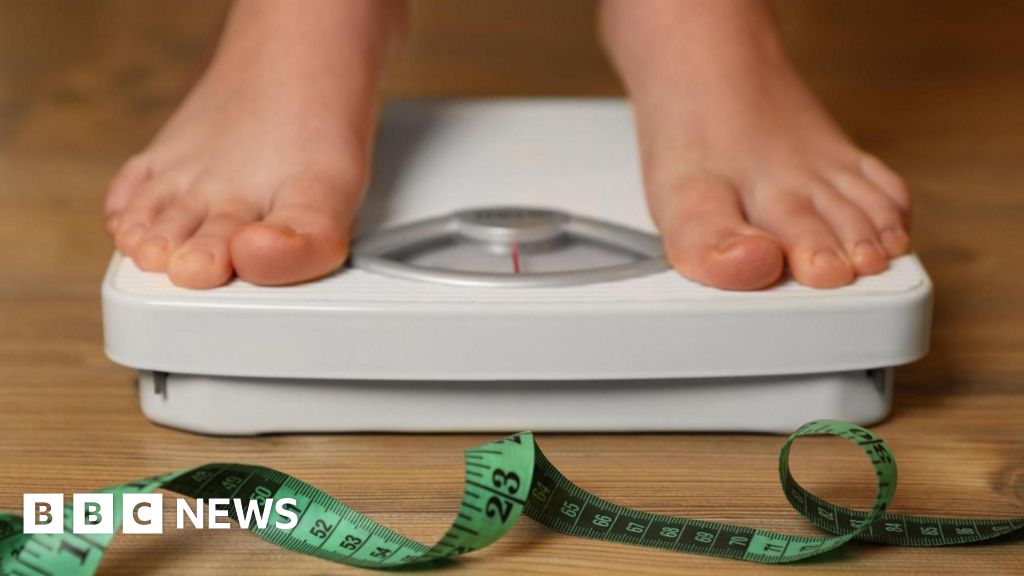People Paying Privately for Weight-Loss Drug Mounjaro in the UK Face a Rise in the Cost of the Treatment After Manufacturer Eli Lilly Said It Was Increasing the List Price of the Drug by as Much as 170%
As Claire sat in a crowded café in London, she felt both excitement and dread. Recently, she had started her weight-loss journey with Mounjaro, an injectable medication hailed for its effectiveness. The 35-year-old mother of two had lost nearly 20% of her body weight. “It felt like a new lease on life,” she explained. But moments later, her phone buzzed with grim news: Eli Lilly had announced a staggering 170% price hike for the drug that had become a lifeline for her and many others struggling with obesity.
The Price Surge: A Broken Promise?
The pharmaceutical giant Eli Lilly revealed that the list price for a month’s supply of Mounjaro, particularly for the highest dosage, would increase from £122 to £330. This increase will affect many of the estimated 1.5 million people in the UK currently using weight-loss drugs, with over half relying on Mounjaro. A report from the Institute for Healthcare Economics suggested that nearly 90% of these patients pay for their medications privately, purchasing them primarily from online services and local pharmacies.
Understanding the Rationale
- Market Alignment: Eli Lilly stated the initial UK pricing was “significantly below” that of other European nations, emphasizing the need for a price realignment.
- Cost of Innovation: The company argued that the new pricing reflects recent clinical evidence supporting the drug’s value.
- NHS Negotiations: Importantly, the NHS will not be affected by these changes, as it has negotiated a heavily discounted rate for patients receiving the drug on prescription.
In a recent statement, Eli Lilly defended its decision: “At launch, Lilly agreed to a UK list price that is significantly below the European average to prevent delays in NHS availability. With changes in the environment and new clinical evidence supporting the value of Mounjaro, we are now aligning the list price more consistently to ensure fair global contributions to the cost of innovation.” Yet, for many patients like Claire, the rationale behind the price jump rings hollow.
Voices of Concern
Dr. Leyla Hannbeck, head of the Independent Pharmacies Association, expressed shock and disappointment at the price hike. “This is a real blow to patients, especially as more individuals, concerned about their weight, are turning to jab treatments,” she said. Dr. Hannbeck urged patients already on Mounjaro to consult their local pharmacies before reacting to the news. “It’s crucial that those considering weight-loss jabs do not feel discouraged, as Mounjaro is not the only option available,” she noted.
The Threat of the Black Market
Concern is mounting that the steep price rise could drive patients to seek alternatives on the black market, with even higher risks associated with such actions. Dr. Sophie Dix, head of medical affairs for the online pharmacy Medexpress and a former Eli Lilly employee, voiced her concerns during a recent interview: “The absolute worst-case scenario would be if customers turned to the black market for weight-loss drugs. There are numerous dangers associated with that choice. We always encourage patients to discuss their options with a qualified provider rather than looking elsewhere.”
Research from the Health Policy Research Institute indicates that incidents of black-market transactions can increase by as much as 30% following significant price hikes in pharmaceuticals, highlighting the potential ramifications of Eli Lilly’s decision.
Broader Context: Drug Pricing and Health Inequality
The announcement of the price increase comes against the backdrop of a wider conversation about drug pricing globally. Experts argue that the disparities in pricing for pharmaceutical products often exacerbate health inequalities between nations. In many cases, prices for medications in the United States can reach three times higher than those available in other wealthy countries.
Dr. Emily Carter, an expert in pharmaceutical economics, pointed out that factors like government negotiation power and pricing regulations play a significant role in these disparities. “Patients in wealthier nations should not have to choose between their health and financial security,” Dr. Carter stressed. “We need to prioritize equitable access to essential medications.”
The Collateral Damage
While Eli Lilly has maintained its stance that the new pricing facilitates necessary funding for innovation, the immediate fallout will likely hit households hard. Claire shares her financial woes: “A price jump like this feels like a betrayal. It seems to completely disregard the struggles some of us face. I was hoping to continue my journey with Mounjaro, but at this rate, it feels unattainable.”
This sentiment resonates in the community where weight-loss drugs are not just seen as medical treatments but as crucial support systems for mental and emotional well-being.
The Way Forward
As conversations about Mounjaro’s price become a focal point, many patients are now re-evaluating their options. Pharmacies, like those represented by Dr. Hannbeck, are stepping in to ensure patients are aware of alternate treatments available on the market, which may offer different pricing structures. The message from local pharmacies is clear: do not despair; alternatives exist.
As for Claire, her journey is far from over, but the rising costs have prompted her to seek advice from her pharmacist to explore other avenues. In healthcare, as in life, change is inevitable. How patients adapt to these shifts will determine not just their weight-loss outcomes, but their overall health trajectories moving forward.
Source: www.bbc.com


